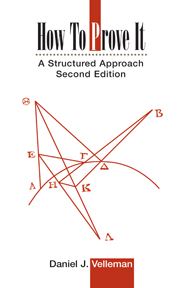1 - Sentential Logic
Summary
Deductive Reasoning and Logical Connectives
As we saw in the introduction, proofs play a central role in mathematics, and deductive reasoning is the foundation on which proofs are based. Therefore, we begin our study of mathematical reasoning and proofs by examining how deductive reasoning works.
Example 1.1.1. Here are three examples of deductive reasoning:
1. It will either rain or snow tomorrow.
It's too warm for snow.
Therefore, it will rain.
2. If today is Sunday, then I don't have to go to work today.
Today is Sunday.
Therefore, I don't have to go to work today.
3. I will go to work either tomorrow or today.
I'm going to stay home today.
Therefore, I will go to work tomorrow.
In each case, we have arrived at a conclusion from the assumption that some other statements, called premises, are true. For example, the premises in argument 3 are the statements “I will go to work either tomorrow or today” and “I'm going to stay home today.” The conclusion is “I will go to work tomorrow,” and it seems to be forced on us somehow by the premises.
But is this conclusion really correct? After all, isn't it possible that I'll stay home today, and then wake up sick tomorrow and end up staying home again?
Information
- Type
- Chapter
- Information
- How to Prove ItA Structured Approach, pp. 8 - 54Publisher: Cambridge University PressPrint publication year: 2006
